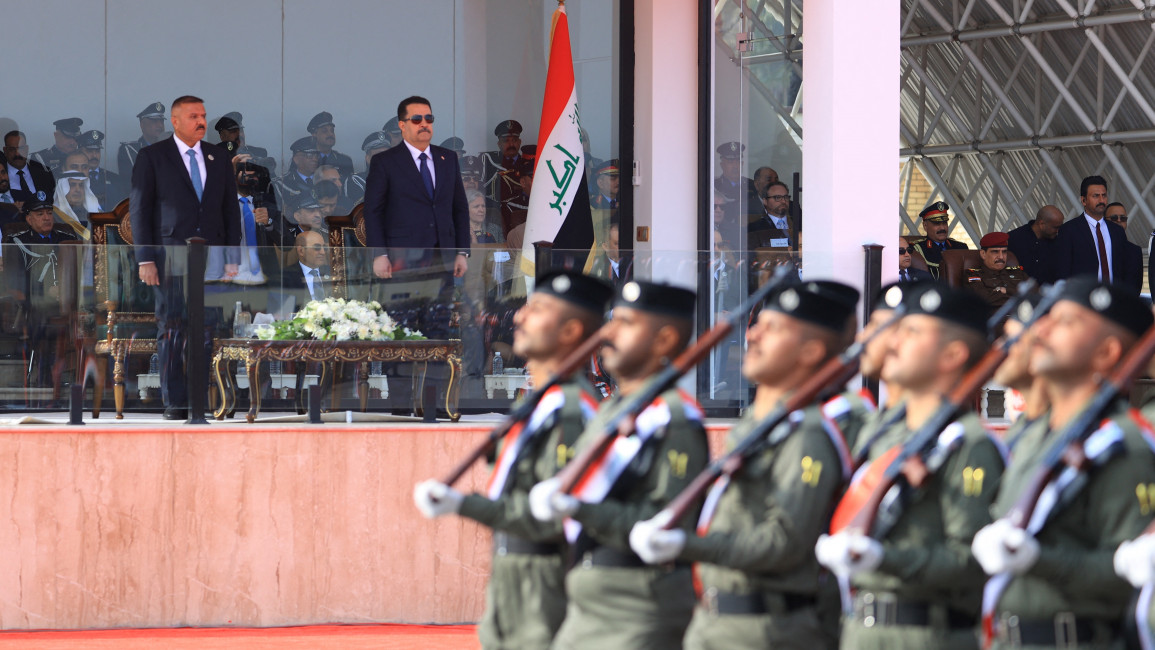Sudani's pledge withdrawal of coalition forces in Iraq tested by Iran-backed militias
Despite Iraqi Prime Minister Mohammed Shia al-Sudani's resolve for a "quick" withdrawal of all US and coalition forces in the country, Iraqi political observers say he has made the move under pressure from the Iran-backed Shia militias, and such a step would be "the end of his government" and a possible path towards total isolation for Iraq.
There would also be economic and diplomatic consequences on Iraq, cautioned various Iraqi analysts. Iraq is OPEC's second-largest oil producer, and its economy is primarily oil-dependent. The revenues from selling its oil are in US dollars kept in Washington.
Commentators warn that any US withdrawal from Iraq would likely shock Iraq's economy, and it would leave the country diplomatically isolated because the expectation is that the European and other Arab diplomatic missions would also leave the country if Washington withdrew its ambassador to Baghdad.
Another political source, speaking on condition of anonymity, remarked to TNA that calls made by the Iraqi parliament for the US and the collation withdrawal from Iraq "are just media propaganda aimed at appeasing the public opinion inside Iraq and the Arab world."
"The Iraqi government and the political leaders are better to know that Iraq is incapable of making the US its enemy because with one statement from the US administration, the value of the Iraqi dinar will crash and the current Iraqi regime will collapse," the source from Iraq's ruling elites opined.
"Therefore, the Iraqi government always makes its position as balanced between the US and Iran fronts and cannot align to one front. This is the best policy Iraq can adopt now. Iraq is not serious about exiting the US and the coalition forces, as the Iraqi parliament has previously made a decision to expel the foreign forces, but it never carried out," the source added.
Last week, the Pentagon said it had no plans to withdraw US troops from Iraq at the invitation of its government.
US-led forces entered Iraq in 2003, overthrowing the former dictator Saddam Hussein in a war that is widely considered illegal. After withdrawing in 2011, they returned in 2014 to combat the Islamic State (IS) group as part of an international coalition. Presently, the US maintains approximately 2,500 troops in Iraq.
Following the territorial defeat of IS in 2017 and its subsequent decline, Sudani argued that the coalition's original purpose had long been fulfilled.
Despite persistent calls for the coalition's withdrawal over the years, little has transpired. In 2020, Iraq's parliament voted for its departure, prompted by the US assassination of top Iranian general Qassem Soleimani and a senior Iraqi militant commander near Baghdad airport. The subsequent year saw the US declare the end of its combat mission in Iraq, shifting focus to advising and assisting Iraqi security forces, a change that had minimal impact on the ground.



